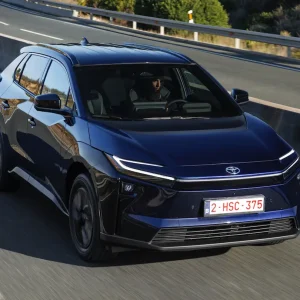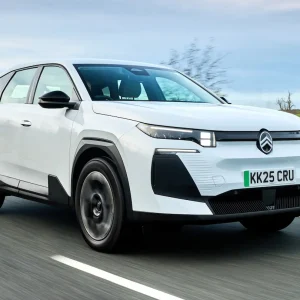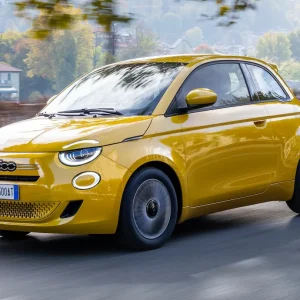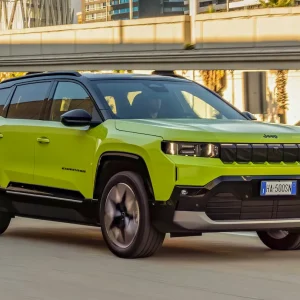Jaguar may have shrugged off its conservative leather-and-wood image for James Bond-esque cool, but the brand now makes more sensible business cars than ever.
Though it can’t match the XE’s sub-100g/km CO2 trump card, the new XF is the lowest-emissions non-hybrid (or electric) large car on the market, kicking off with just 104g/km in 163hp diesel form.
Even the 180hp model chalks up a meagre 114g/km, comparing favourably with German rivals, with just the Audi A6 2.0 TDi ultra 190 – and Volvo S80 D4 – troubling it in the economy stakes.
Neither Audi nor Volvo can match the Jaguar for desirability, however; the new XF is particularly striking in the flesh, with sharp lines and a sleek, high-quality interior. Its appeal isn’t skin deep either, as it’s crafted from lightweight aluminium, which helps it to take corners with enthusiasm while accelerating with gusto.
Fitted with the 180hp diesel, the XF sprints to 62mph in a brisk 8.1 seconds, though this does lag behind the equivalent BMW.
The eight-speed automatic gearbox fitted to our test car shuffled gears quickly, with the engine pulling strongly and smoothly. Engine noise levels are low, and though the motor is audible when you work it hard, it’s never obtrusive. Get up to motorway speeds and low levels of wind and road noise make the XF a relaxing long-distance companion.
The ride in our R-Sport test car with sports suspension was firm but comfortable, giving it taut handling around corners while absorbing the worst bumps in the road. Models with the optional adaptive dampers (standard in S trim), however, offer a noticeably plusher ride without jeopardising the XF’s roadholding.
Weighty steering, meanwhile, gives the driver a huge amount of confidence to take corners at speed, belying the car’s substantial size. The brake pedal in the 2.0-litre diesel did need plenty of pressure to slow the car, though, detracting slightly from the driving experience.
Despite offering more room in the rear seats than its predecessor – and rivals according to Jaguar – space could be a little tight for those six feet tall and over. The boot, in contrast, offers a hefty 540 litres of space, putting it ahead of Audi, BMW and Mercedes alternatives.
It’s running costs that make the XF stand out, though, with it offering 4.4 percentage points greater residuals than the closest German, substantially cheaper insurance and infrequent two-year, 21,000-mile service intervals. Throw in 65.7mpg economy and the XF should cost 3.5p less per mile than the best value German.
Jaguar may have built a name for itself with cars that appeal to the heart rather than the head, but the XF manages to pull at the heart strings without pulling at the purse strings, making it a hugely appealing choice.
Jaguar XF 2.0D 180 R Sport |
| Model price range £32,300 – £49,945 |
| Residual value 41.9% |
| Depreciation £21,370 |
| Fuel £4804 |
| Service, maintenance and repair £3138 |
| Vehicle Excise Duty £60 |
| National Insurance £3047 |
| Cost per mile 69.1p |
| Fuel consumption 65.7mpg |
| CO2 (BIK band) 114g/km (20%) |
| BIK 20/40% per month £123/£245 |
| Warranty 3yrs/Unlimited |
| Boot space (min/max) 540/963 litres |
| Engine size/power 1999cc/180hp |





